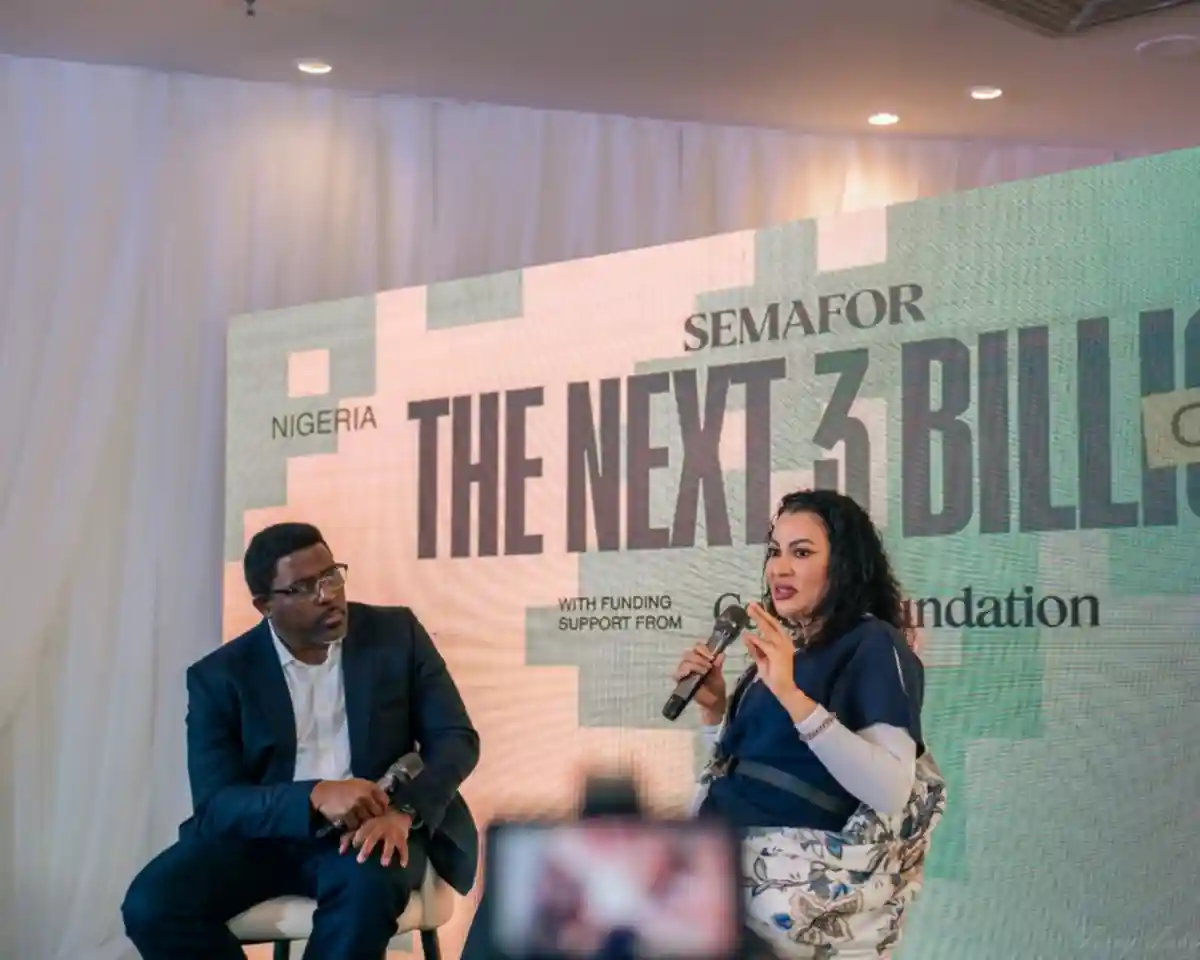The Federal Government has reaffirmed its commitment to expanding financial inclusion in Nigeria through digital identity and pro-growth regulation. This pledge was restated by the Minister of State for Finance, Dr. Doris Uzoka-Anite, during Semafor’s Next 3 Billion Tour held at the Transcorp Hilton, Abuja.
The event, produced by Semafor in partnership with the Bill and Melinda Gates Foundation, gathered policymakers, business leaders, innovators, and civil society members to translate global research on inclusion and connectivity into country-level action. The Abuja session follows Semafor’s New York summit held on the sidelines of the 2025 United Nations General Assembly and comes ahead of additional tour events scheduled across Africa and the Middle East.
Speaking during a panel moderated by Semafor’s Yinka Adegoke, Dr. Uzoka-Anite highlighted the progress achieved through reforms under President Bola Ahmed Tinubu’s Renewed Hope Agenda. She emphasized the importance of trusted digital identity systems, agent banking, and the growing role of mobile money platforms in deepening financial access.
“Trust is the foundation of inclusion. With NIN and BVN strengthening identity verification, more Nigerians can be safely onboarded into the financial system,” she said.
The Minister noted that mobile-first solutions and nationwide agent networks are helping reduce barriers to financial services. “People can transact, save, and receive payments in their communities without heavy brick-and-mortar infrastructure,” she added.
Dr. Uzoka-Anite praised the impact of platforms such as Moniepoint, OPAY, and PalmPay, alongside bank-led wallets and agency services, in driving daily-use cases like payments and remittances for households and small businesses. She also revealed that consumer credit reforms are being designed to help Nigerians spend wisely, earn, and build assets over time.
“When people can save securely within the financial system instead of keeping cash at home that is vulnerable to theft, fire, or flooding, they protect their income capital and strengthen long-term stability,” she said. “Our focus is practical and people-centered. Expand connectivity, improve affordability, raise digital literacy, and keep regulation smart so innovation can scale responsibly.”
The Minister commended the Central Bank of Nigeria and ecosystem partners for improving settlement infrastructure and supporting the nationwide growth of agent banking. She, however, acknowledged that gaps remain in power supply, connectivity, and digital skills. According to her, the Ministry will continue collaborating with relevant ministries, regulators, state governments, and the private sector to close these gaps.
“Change can feel gradual, but days like today show the distance we have covered,” she stated. “Under the Renewed Hope Agenda, we will keep linking policy to the tools people actually use on their phones every day to work, trade, and save.”
Dr. Uzoka-Anite expressed appreciation to Semafor, the Gates Foundation, and participants for fostering a solutions-focused dialogue. The Next 3 Billion Tour is spotlighting insights from the Global Findex 2025 report and the Global Digital Connectivity Tracker to shape inclusive growth strategies in emerging markets.
With Nigeria’s renewed focus on digital identity, fintech innovation, and pro-growth regulation, the nation is positioning itself to accelerate financial inclusion and drive sustainable economic growth for its citizens.

